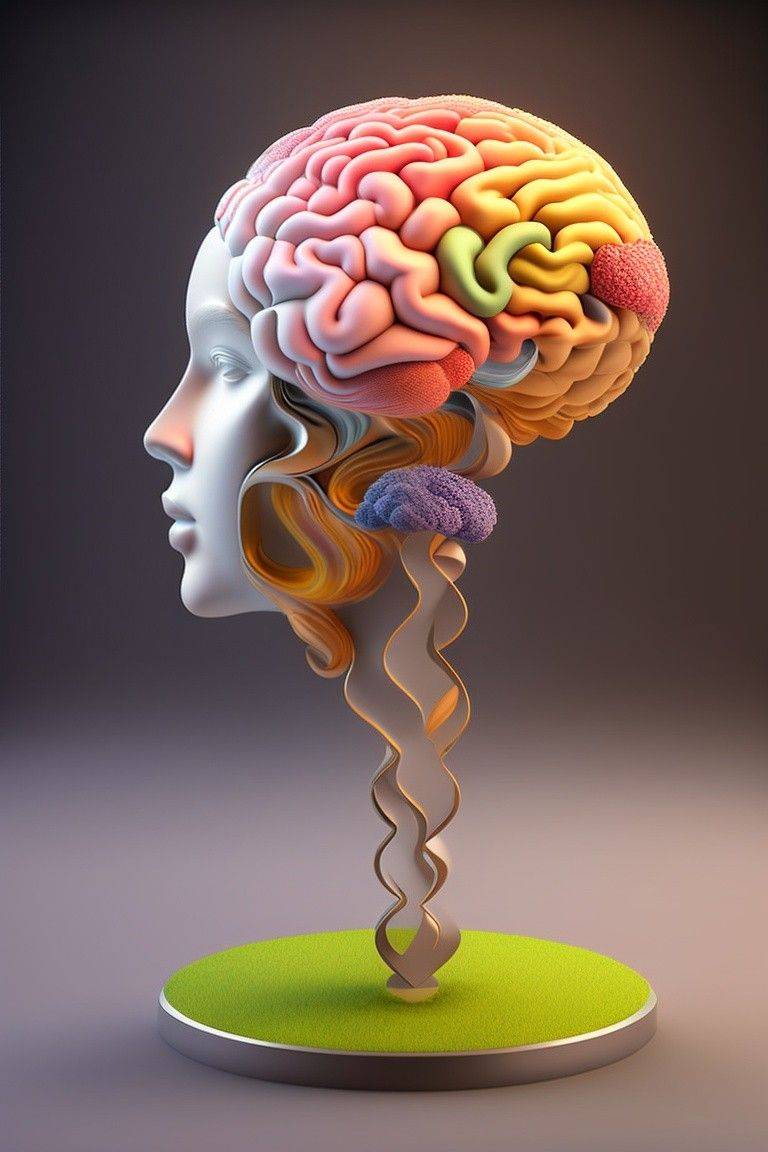One interesting and timely development in AI is the rapid progress in using this technology to tackle complex scientific problems, particularly in the field of healthcare and medicine.
One specific achievement is the application of AI in drug and vaccine development.
For example, AI played a crucial role in speeding up the research process for COVID-19 vaccines. It analyzed massive datasets of protein structures and predicted how various compounds would interact with the virus. This allowed researchers to test potential vaccines in simulations before moving to physical trials, drastically reducing the time needed for development.
A fascinating anecdote involves DeepMind’s AI, AlphaFold.
In 2020, it made a breakthrough by accurately predicting protein structures, which had stumped scientists for decades. Its success opened new doors in understanding diseases and creating treatments, and just recently, DeepMind released the predicted structures of nearly every protein known to science—over 200 million!
This democratized access to critical data for researchers worldwide.
The Protein Folding Problem
Proteins are the building blocks of life. They perform a wide range of functions in cells, from acting as enzymes to providing structural support. How a protein functions depends heavily on its 3D shape, which is determined by how it “folds.” Understanding this shape is crucial for many areas of biology and medicine, including drug development, disease understanding, and bioengineering.
However, determining a protein’s structure is incredibly difficult. For decades, this challenge was known as the “protein folding problem.”
Experimental methods like X-ray crystallography and cryo-electron microscopy can determine protein structures, but they are expensive and ineffective.
For 50 years, scientists have been trying to crack the code of how amino acid sequences fold into functional 3D proteins. Still, the sheer number of possible folding configurations has made it nearly impossible to solve efficiently.
The Breakthrough with AlphaFold
In 2020, **AlphaFold**, an AI system developed by DeepMind, made headlines by solving this long-standing problem with remarkable accuracy. The AI model was trained on a vast dataset of known protein structures and could predict how amino acid chains would fold into 3D shapes, even for proteins that had never been studied before.
During the CASP14 competition (Critical Assessment of Protein Structure Prediction), a global event where researchers test the accuracy of their protein structure prediction models, AlphaFold outperformed all other approaches by a significant margin. It achieved a median score of 92.4 GDT (Global Distance Test), close to experimental-level accuracy. This was a massive leap, with many experts declaring it a near-solution to the “protein folding problem”.
AlphaFold’s Impact on Science and Medicine
The implications of this breakthrough have been profound:
- Accelerating Drug Discovery:
AlphaFold has opened the door for faster drug discovery by accurately predicting protein structures. Knowing the exact structure of a protein allows researchers to design drugs that target it more precisely. This is especially important for diseases like cancer, Alzheimer’s, and antibiotic-resistant bacteria.
- Unfolding Biological Mysteries:
Thousands of proteins’ structures were previously unknown. AlphaFold has helped identify these structures, filling in gaps in our understanding of how different organisms function at the molecular level. In 2022, DeepMind and EMBL’s European Bioinformatics Institute released the “AlphaFold Protein Structure Database,” which contains the predicted structures of over 200 million proteins. This includes nearly every protein from humans, animals, plants, bacteria, and other organisms.
- Practical Applications:
AlphaFold has already started being used in real-world applications. For instance, it’s helping scientists design enzymes that break down plastic waste, a crucial step in addressing environmental pollution. It is also aiding in developing new proteins for industrial and medical applications, such as better diagnostics or biomanufacturing processes.
- Vaccine and Antibody Development:
The COVID-19 pandemic highlighted the importance of rapid vaccine development. AlphaFold’s structural insights into viral proteins, such as those of SARS-CoV-2, provided a deeper understanding of the virus and informed both vaccine and therapeutic research. This same approach is now applied to other pathogens and diseases, which could help prevent future pandemics.
The Future of AlphaFold and AI in Science
AlphaFold’s success is just the beginning. The accuracy and speed with which it can predict protein structures have inspired the development of new AI-driven tools in biology. Scientists are now working on applying similar techniques to other unsolved problems, like protein-protein interactions, protein folding dynamics, and even DNA/RNA folding.
Moreover, the AlphaFold Protein Structure Database is freely accessible to researchers worldwide. This democratization of cutting-edge scientific tools is accelerating progress across many fields. For instance, in the field of antibiotic resistance, knowing the structure of bacterial proteins can lead to the design of new antibiotics that target previously elusive bacterial proteins, potentially saving millions of lives.
Anecdote from Researchers
A particularly touching story comes from a scientist at the University of Washington, who had spent years trying to solve the structure of a specific protein linked to a rare disease.
After AlphaFold released its predictions, he found the answer to his research problem within minutes. What had taken him years of trial and error in the lab was solved by AI in mere seconds.
In short, AI has not just solved a long-standing challenge in biology; it has opened up new avenues for exploration and discovery that could benefit medicine, environmental science, and more profoundly. AlphaFold represents a glimpse into a future where AI doesn’t just assist in scientific research—it fundamentally transforms it.
Here are a few sources where you can explore the latest developments and insights about AlphaFold’s groundbreaking protein folding predictions:
- **Nature** covers the vast impact of AlphaFold, emphasizing how it predicted the structure of nearly all known proteins, transforming biological research and drug discovery. [Explore it here].
- **EMBL’s press release** dives into how AlphaFold has become a powerful tool for accelerating scientific discoveries by providing the most accurate 3D models of proteins. Open access to databases has been described as a scientific revolution. [Read more on EMBL]
- **AlphaFold Database** gives direct access to the protein structures predicted by AlphaFold, covering over 200 million proteins across species. [Visit the database here].
Personal Conclusion
AI works because human genius made it possible; let’s not forget that.
The mental process is slow and has taken centuries to arrive at important ideas. Yet, in the not-so-distant past, the ancients left us immense knowledge that was not easily measurable at the time since there were no tools to do so (think of the ancient Chinese theories in medicine and the discoveries born in the Indu Valley even before Christ and the discovery of America).
Thus, AI is nothing more than a tool in our hands.
As for health discoveries, I’ve been exposed here several times. I’ve worked in Health environments, and there are prevention tools today that don’t need all this advanced technology because they’ve been handed down to us from ancestors, such as the cure for cancer or type two diabetes. Nutrition and clean environments (no pollution, dirty waters etc.) in this field are and will always be a cornerstone to approach, otherwise, we will end up living in a society controlled by drugs and in an environment controlled by Cartels (as is already the case, and I am not talking about South America – Pharma etc) that will stuff us with vaccines and pills.
I don’t want a world like that; however, at the same time, one day, I will die, and certainly, from then on, what has been done will be the pattern by which humanity will move forward. Then it really won’t matter to me. Still, it will certainly matter to those who hope to live in a greener society and consider the environment an essential factor for their health rather than relying solely on AI.
Please let me know what you think about this. Comment below

Is AI dangerous? Find it out reading this article here


